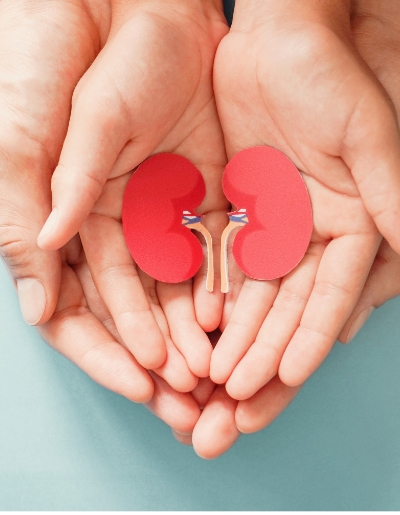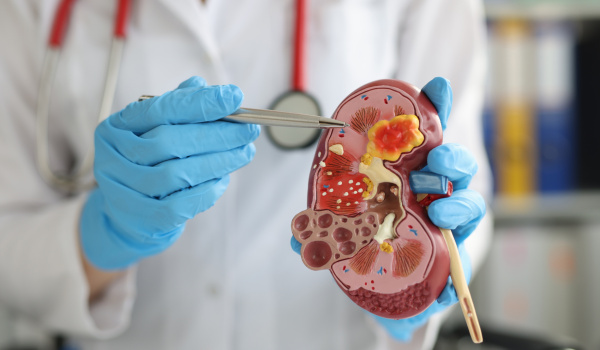Your kidneys -- two bean-shaped organs located in your lower back which are your body's filtration system, cleaning wastes and extra fluids from your body and producing urine and balancing chemicals that are necessary for your body to function. Healthy kidneys functions are to:
- Clean and filter your blood
- Produce urine
- Produce hormones
- Control blood pressure
- Keep bones strong
Following a kidney-friendly diet, managing health conditions such as diabetes and hypertension and not smoking may help your kidneys function better and longer.

Facts About Kidney Disease in Malaysia
Kidney disease is a major global health crisis caused mainly by diabetes and high blood pressure, with 16% of the world’s population or 2.6 million patients requiring dialysis. Chronic Kidney Disease (CKD) in Malaysia is becoming increasingly common among younger people.
According to Health Minister Khairy Jamaluddin, there are currently over 40,000 people suffering from kidney disease in Malaysia, and over 8,000 new cases have been diagnosed every year since 2018. Study shows that the prevalence rate of Chronic Kidney Disease (CKD) in Malaysia has increased from 9.07% in 2011 to 15.48% in 2018.
Kidney disease symptoms are often subtle, and they can be easily overlooked or mistaken for something else. The most common symptoms that you may experience from kidney diseases are pain or burning sensation during urination, swelling in the feet or ankles, muscle cramps, nausea, vomiting and drowsiness.
Early detection of kidney disease is important because it can help to prevent kidney failure or more serious complications. If you are worried about the functionality of your kidney or have some kidney disease symptoms, you should consult with a doctor immediately.

Preventing yourself from Kidney Disease
Keeping your kidneys healthy and away from signs and symptoms of chronic kidney disease is important to your well-being. Your kidneys remove toxins from the blood and regulate water levels in your body. Here are a few suggestions of what you can do to keep your kidney healthy:
- Stay healthy and fit with regular exercise.
- Consistently check your blood sugar levels.
- Regularly observe your blood pressure.
- Frequently keep track of your weight and eat a healthy and balanced diet.
- Keep yourself hydrated with enough water.
- Avoid smoking.
- Pay attention to the number of OTC prescription pills you are taking.
- Check your kidney function if you are at risk of developing chronic kidney disease symptoms.
Regular kidney function tests will show you if there is a problem or if you need to see your doctor sooner. A regular check can also help to identify if there is something wrong with your kidneys. If you sense a problem or feel the early signs of kidney disease, you should get checked out right away.





